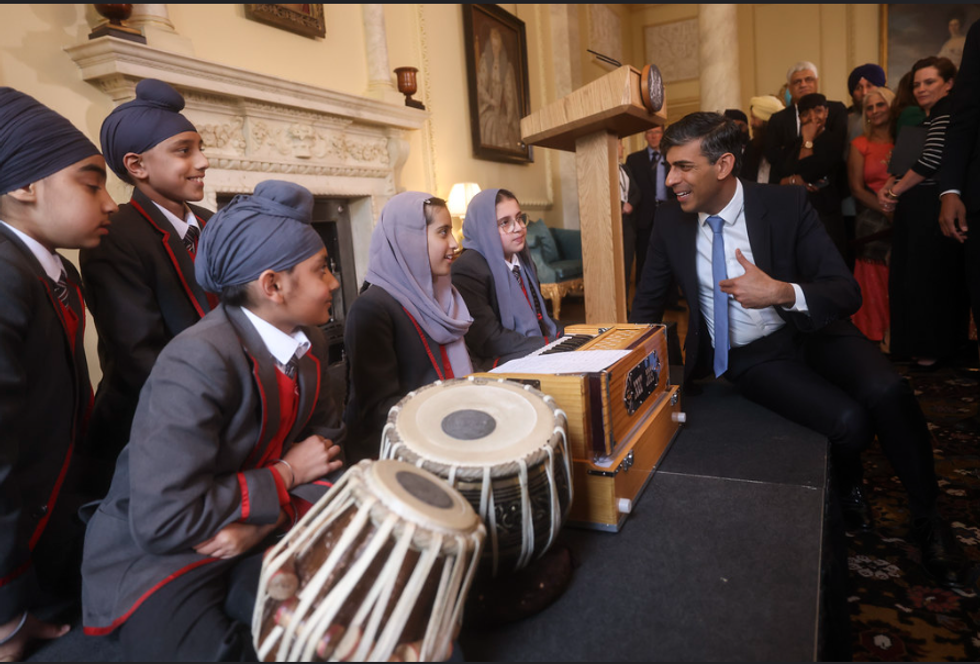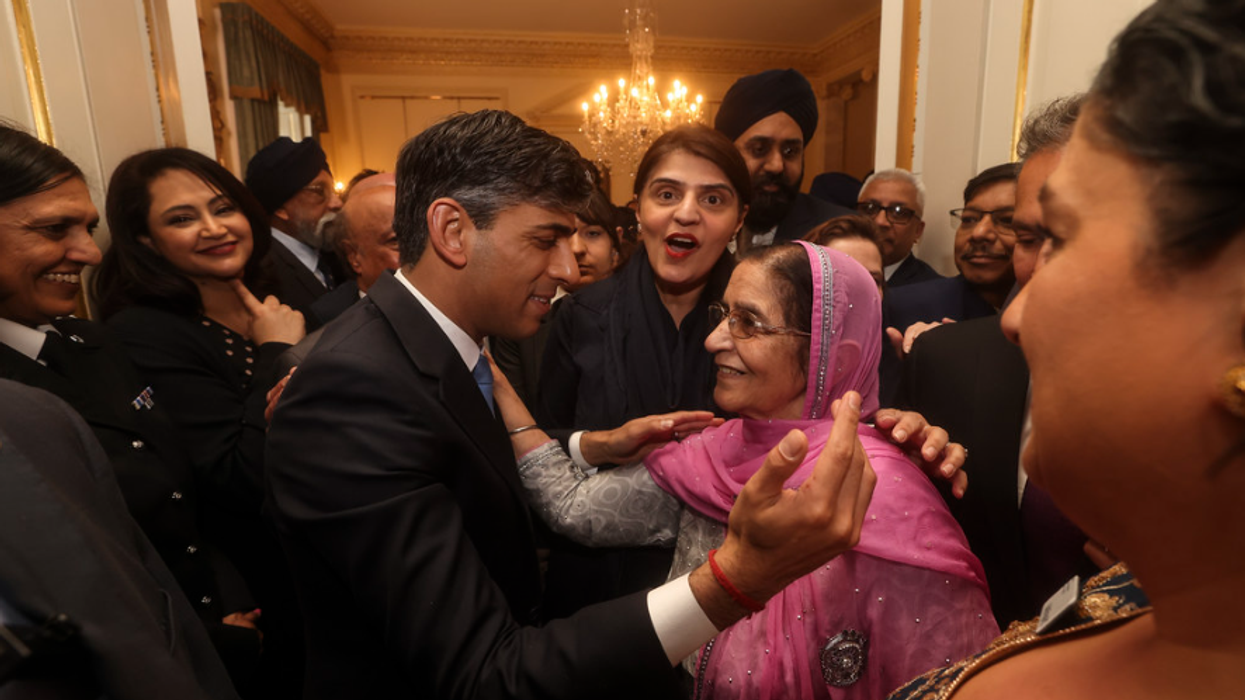PRIME MINISTER Rishi Sunak invoked the Sikh principle of service (sewa) as he hosted a reception to celebrate Vaisakhi at Downing Street last Wednesday (17).
More than a hundred guests – including politicians, community and faith leaders and members of the military – gathered to hear the prime minister pay tribute to British Sikhs as the community marked the harvest festival.
Sunak, who is British Punjabi, said, “It’s extraordinary to think of Vaisakhi, dating back to 1699. Its origins in celebrating the harvest, the birth of Khalsa, and flourishing for generations spreading the Guru Granth Sahib [the Sikh holy text], a message of truth, compassion, equality, humility, and service.
“This giving and this service to society is embodied by Nagar Kirtans across Britain, bringing communities together.”
Among those attending the reception were Pam Gosal MSP, Reena Ranger of the Conservative Friends of India; Kulveer Ranger, Mohan Kaul and musician Channi Singh.
Sunak remembered his grandparents who were from Punjab but migrated to east Africa before arriving in the UK.
“It feels particularly special that we’re hosting a reception in number 10,” he said.
Recalling his childhood, the prime minister spoke of his love of kada prasad, offered at gurdwaras.
Sunak also noted the accomplishments of some prominent Punjabis, among them “the fastest woman to the South Pole”, captain Preet Chandi of the Army. She broke two Guinness World Records in January 2023, for both the longest solo, unsupported one-way polar ski journey for a woman and also the longest solo unsupported one-way polar ski journey overall.
And in December last year she became the fastest woman to complete a solo unsupported South Pole ski expedition, covering 700 miles of ice in 31 days, 13 hours and 19 minutes.

Rajinder Singh Dhatt, 101, a veteran of the Second World War, and who founded the undivided Indian ExServicemen’s Association, was honoured with a Points of Light award by the prime minister in June last year.
Sunak also referred to Navjot Sawhney, who was in the US last week, “raising money, millions in fact,” from the Whirlpool Foundation.
Those funds will go towards 10,000 of the manual washing machines Sawhney created to help people in low-income communities who might otherwise be washing clothes by hand, Sunak pointed out.
“And speaking of extraordinary people, we also now have Fauja Singh, the world’s oldest marathon runners,” the prime minister said.
He added, “There are many more incredible people living those values day in, day out, in our police, our armed forces, in business, education, health and so much more.
“So let me end with a personal thank you to everyone here and to Sikh families across Britain. I wish you all peace, joy, prosperity, this Vaisakhi.”
Primary school students from the Nishkam school in Birmingham sang prayers at the event.




